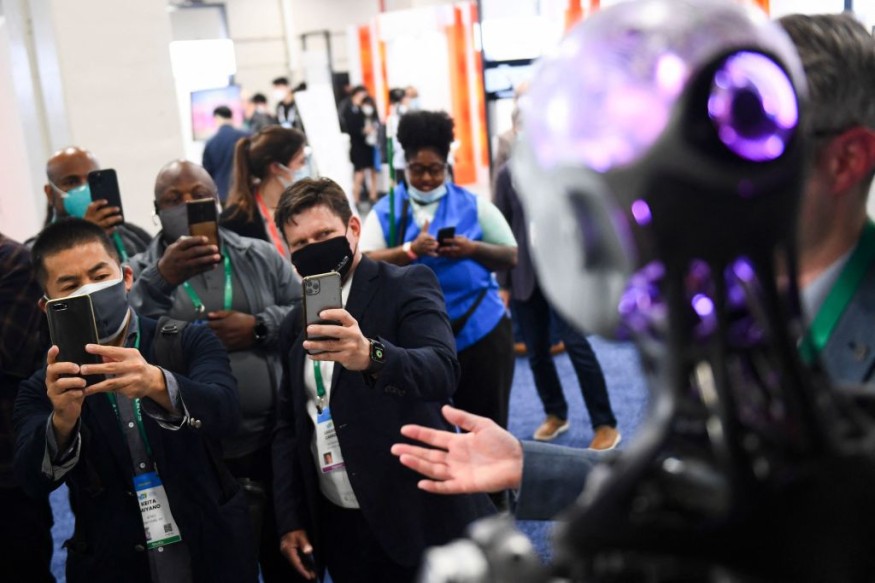Consciousness in machines seems impossible, but the recent developments of AI-based innovations prove what we can achieve for the next few years.
Present-day technologies are now reaching beyond what we expected in the past. Neural networks are being more perfected than ever, allowing life-less machines to study, solve problems, calculate finance, and assist in medical operations.
Conscious Artificial Intelligence
We can safely assume that consciousness in AI machines and humanoids can work with the advancements at hand. However, OpenAI expert and co-founder Ilya Sutskever believes that consciousness is already manifesting in modern-day artificial intelligence today.
Sutskever, chief scientist of the prestigious OpenAI, a research firm known for developing top-notch AI-based technologies, tweeted that the largest neural networks potentially contain a slight consciousness.
Sutskever did not specify any developments. However, a possible subject that inspired the insight is the mega-scale neural network called GPT-3. The system, developed by OpenAI, consists of 125 billion parameter languages that process translation, problem-solving, and completion of missing data.
Sutskever already appeared in some documentaries about artificial intelligence, stating that machines can solve world problems, but in parallel, pose a threat of creating stable dictatorships.
Sutskever co-founded OpenAI with tech giant Elon Musk and the company's current CEO Sam Altman back in 2016. It is the first account that Sutskever claimed the presence of consciousness in AI machines.
it may be that today's large neural networks are slightly conscious
— Ilya Sutskever (@ilyasut) February 9, 2022
What Is Artificial Neural Networks?
Artificial neural networks are collections of units or nodes that work similarly to the neurons we have in the natural brain. Like biological cells, the neural networks are trained to perform tasks that could cater to complicated functions but without any real-time human input.
Imprinting consciousness in neural network-using machines seems improbable and far-fetched. Even experts do not believe that devices can achieve humans' basic intelligence.
Artificial intelligence has been portrayed in various cinematography and novels. Most of the time, these machines have consciousness on par with humans. One example is HAL 9000 from Arthur C. Clarke and Stanley Kubrick's classic "2001: A Space Odyssey," when it tries to save itself by eliminating its human companions.
Claims of consciousness in AI-based systems are still considered a "hype," even though the world witnesses separate events of success in AI-powered aircraft flights, automobile drives, humanoids, and assistants.

Read also: Humans Vs Artificial Intelligence: Which Can Determine Real Photos, Cutouts, and Masks Accurately?
Consciousness in AI Machines an Overstatement?
Futurism reported that many researchers see Sutskever's insight as an overstatement.
UNSW Syndey AI expert Toby Walsh said that every time a speculative comment such as Sutskever's gets publicized, the efforts required to get a realistic conversation between opportunities and threats of AI take months.
Queensland University of Technology (QUT) Center for the Digital Economy expert Marek Kowalkiewicz said we barely even know what consciousness might look like.
According to Oregon State University AI specialist Thomas Dietterich, the existence of consciousness lacks evidence, suggesting that Sutskever is just "trolling."
Although it seems like a psychological figment, consciousness might be everything that we experience in our lifetime, according to neurophysiologist and computational neuroscientist Christof Koch.
Deep-learning technology expert Valentino Zocca said in a DailyMail report that the concept of consciousness in AI is nothing more than hype. Sociotechnology specialist Jurgen Geuter added that Sutskever's statement is not an actual idea but a simple sales pitch.
Illinois Institute of Technology Elisabeth Hildt previously suggested that current machines and robots are not conscious, contrary to what science fiction represents.
A study published in the Frontiers in Artificial Intelligence, titled "Human- versus Artificial Intelligence," suggests that human intelligence is far superior to AI-based systems. According to the research, the AI agents will remain unconscious machines that will serve their purpose of assisting humans in specific and complex tasks.
RELATED ARTICLE : Artificial Intelligence Win Over All Human Gamers in the Famous Gran Turismo Racing Game
Check out more news and information on Artificial Intelligence in Science Times.
© 2026 ScienceTimes.com All rights reserved. Do not reproduce without permission. The window to the world of Science Times.











